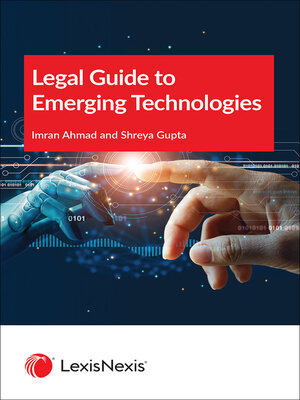
Sign up to save your library
With an OverDrive account, you can save your favorite libraries for at-a-glance information about availability. Find out more about OverDrive accounts.
Find this title in Libby, the library reading app by OverDrive.



Search for a digital library with this title
Title found at these libraries:
| Library Name | Distance |
|---|---|
| Loading... |
Technological progress has never been more rapid, complex or innovative. Legal counsel and business leaders face the ever-growing challenge of not only staying up to date with the latest technological developments, but also navigating the legal implications associated with their adoption. Understanding and navigating emerging technologies is now important for all businesses – even if an organization is not developing technology, it is certainly procuring or otherwise relying on it.
Legal Guide to Emerging Technologies serves as a one-stop shop for legal counsel and business leaders as they navigate the growing involvement of emerging technologies. It provides an overview of six emerging technologies that are poised to drive many changes in the upcoming years:
Legal Guide to Emerging Technologies covers the various legal implications associated with these six emerging technologies, outlines the legal framework in Canada as well as in select foreign jurisdictions, and provides best practices for legal counsel when dealing with these new technologies.
Who Should Read This Book







